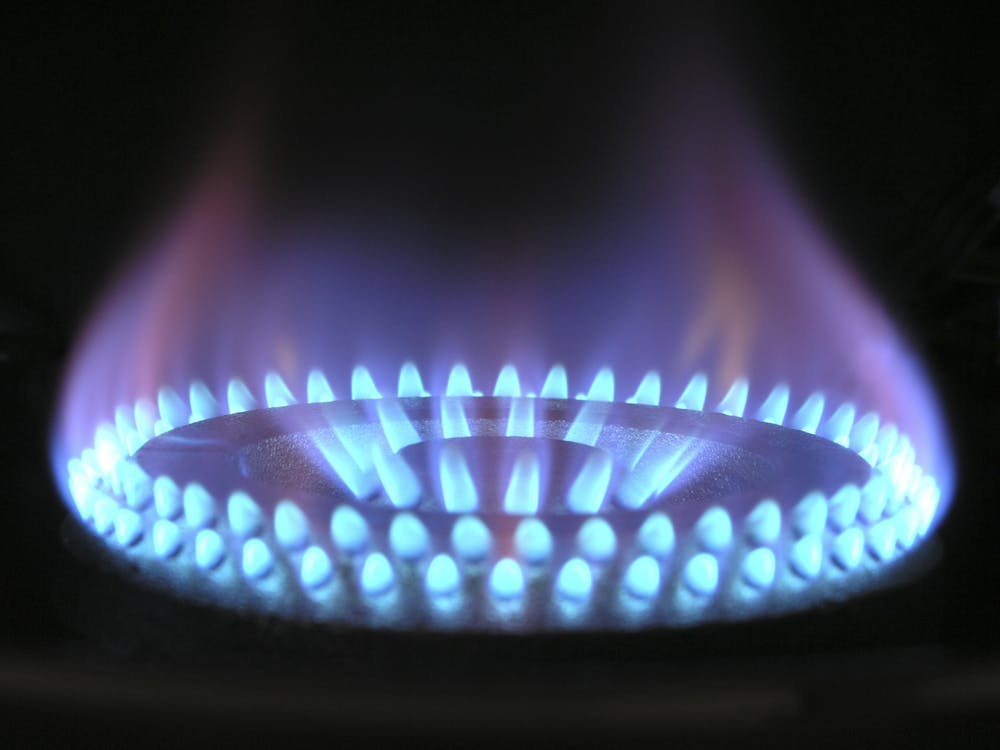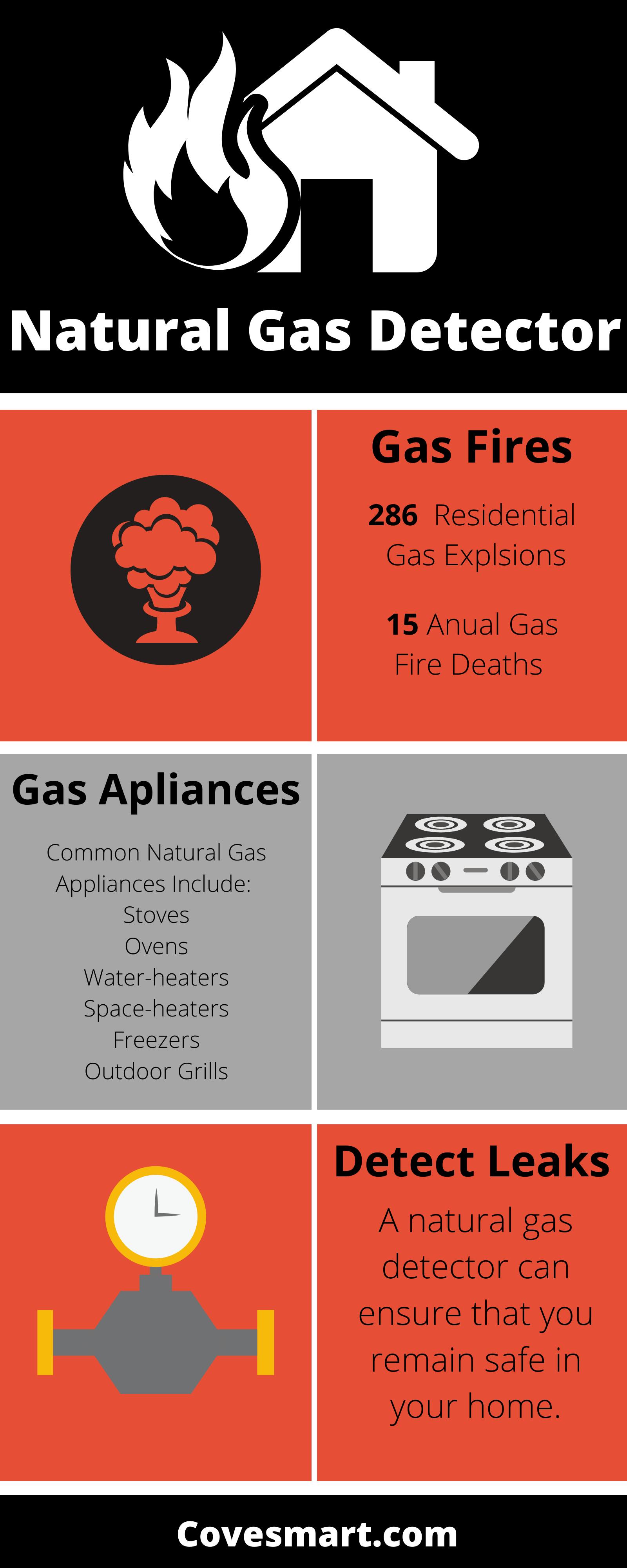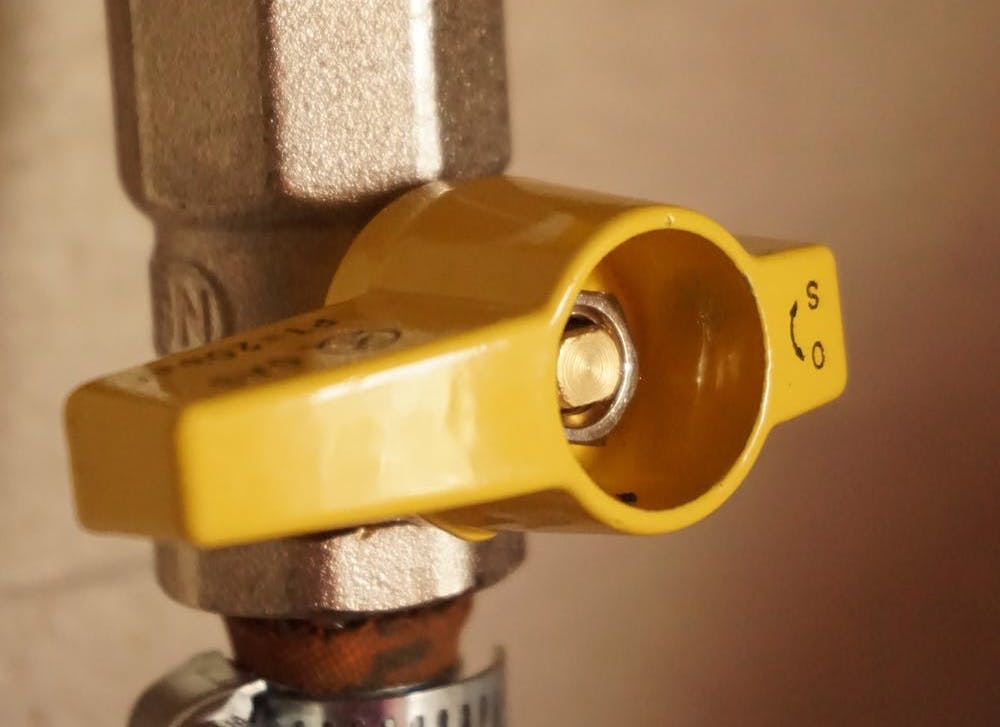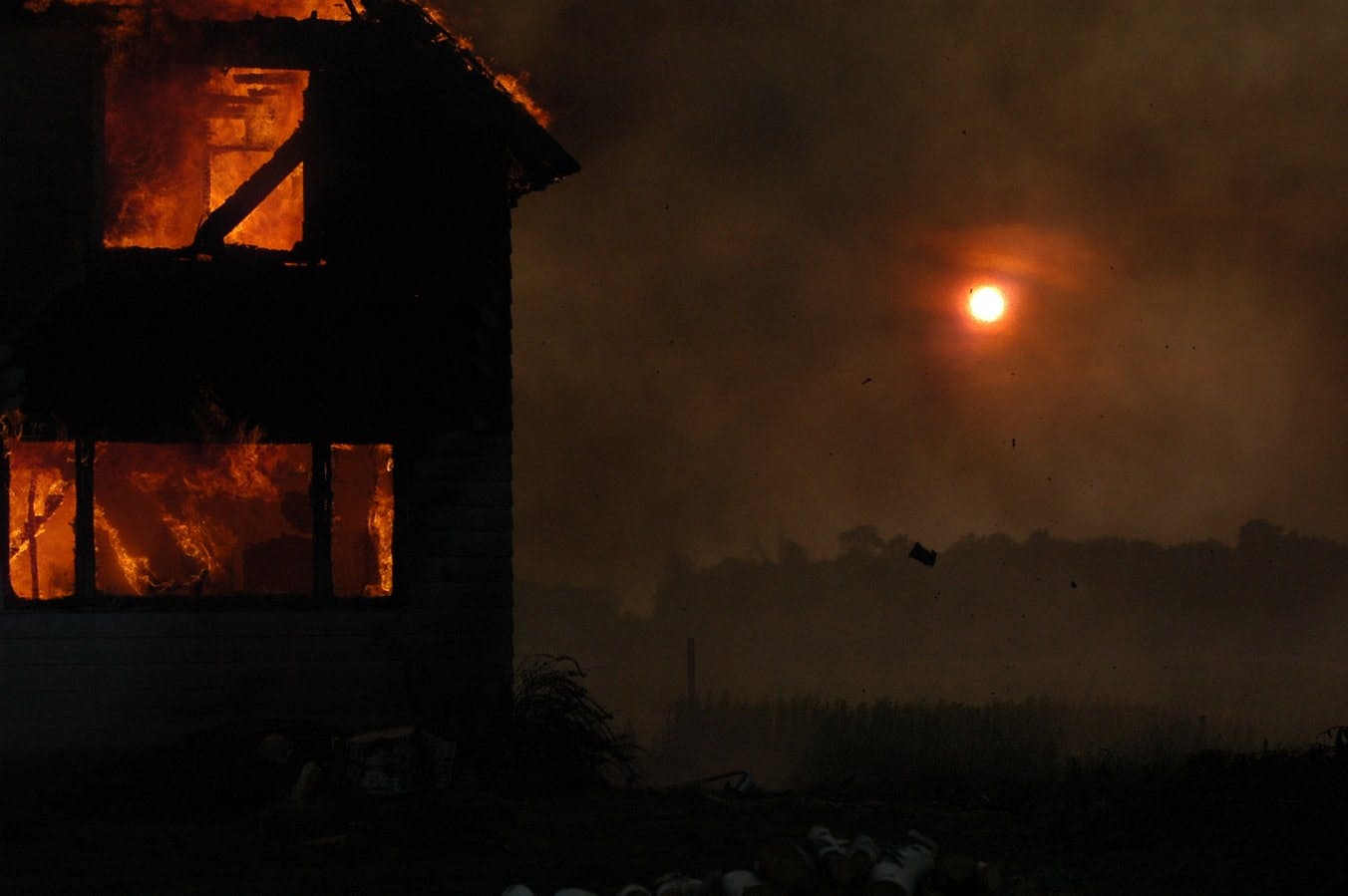
Is a Natural Gas Detector Necessary?
Few fires are more dangerous and destructive as gas fires. Few homes are designed with any sensory detection for gas leaks despite the dependency our home appliances have on natural gas. A natural gas detector can provide you with additional protection for your home by alerting you to potential danger so you remain safe. Natural gas is commonplace due to modern utilities and is frequently used as fuel for home appliances. As its use becomes more prevalent, being cautious and aware will help to prevent dangers to you and your family. There are many things to consider when it comes to natural gas, including: how it is being used in your home, what can cause a natural gas leak, and what type of natural gas leak detector would be best for protecting you. By learning about natural gas, you will be better prepared to handle any difficult gas-related situation that may arise and create an overall safer home.

What is Natural Gas?
Natural gas is a highly combustible fossil fuel and has seen an increase in use due to the minimal emission it gives off when burned. Natural gas is considered to be among the safest fossil fuels and can be found deep below the earth all over the world. Natural gas deposits are frequently found near oil deposits and the deeper the gas is found, the higher the quality of the gas. This highly flammable resource is non-toxic in its pure form, but nevertheless, should not be breathed. Natural gas use has been documented as early as 500 BC when Chinese civilizations used it as a fuel source to create and purify drinking water. Its use became better known in the 1600s and by 1850 the development of pipes and tools to use natural gas began to dramatically increase within the United States. Its use, and our increased understanding of extracting the gas from deep within the earth, has led to the creation of thousands of miles of natural gas pipelines. Even though use of this natural resource has become commonplace in many homes, its danger is not well known or considered.
How Does Natural Gas Affect American Homes?
The average American household has at least one major natural gas powered appliance, which is used on a daily basis. Home heating, washing, and cooking appliances are among the most common utilities which can run off of natural gas. With advancements in technology leading to more convenient and comfortable living conditions, these innovations have not come without danger. The increase of gas appliances has not come with an increase of combustible gas leak detectors which are missing from almost every home. There are 138.45 million housing units across the United States. That number includes houses, apartments, condos, and other livable dwellings. There are about 2,500 home fires every year which means less than 0.002 percent of every home in the country catches fire. Although the number of home fires may be small in comparison to the general population, any home fire is a tragedy especially when lives are lost unnecessarily. On average, 15 people die every year as a result of a natural gas leak, and combustible gases cause an average of 286 explosions annually. Gas related fires and explosions also result in millions of dollars in property damage. Given the number of people and households that use gas appliances, the number that use a gas alarm or gas monitor is alarmingly low despite the ease of obtaining gas detection devices. With the use of natural gas and propane becoming both common and affordable, it is in your best interest to have a device that detects the presence of a leak. Using a gas leak detector with distinct and clear alarm sounds will help you distinguish it from other alarms you might be using in your home. Purchasing a natural gas detector is the cautious, simple, and practical way to save yourself from devastating heartache. Explosions and fires caused by natural gas are not the only dangers to be aware of. Although gas used in electrical, heating, cooking, and washing appliances is not toxic when breathed, it can still be deadly because natural gas can cause asphyxiation. Additionally, it is more likely for you to die from asphyxiation than from a leak-caused explosion. If natural gas is allowed to build up in an enclosed space, it will eventually become concentrated enough to cause death from asphyxiation. A detector that can warn you if a leak occurs while you are sleeping is highly beneficial, since this danger could be a sudden and unpredictable occurrence.

How is Natural Gas Used in My Home?
Once natural gas is collected, it is compressed and becomes CNG (compressed natural gas) which is then delivered through pipelines to homes where it can be used by appliances. Most CNG is used for space and water heating. CNG is also used with stoves, ovens, clothes dryers, lighting fixtures, and occasionally outdoor cookers. Because heaters that use natural gas are the most frequently used, it is a good idea to place a detector next to these appliances. Having one available to alert you to the presence of a leak will help add another layer of protection to your home. It is likely that your water heaters and furnaces are secluded in a room that is not commonly entered. If a leak were to happen, it may not be detectable until the levels of gas have built up enough to become dangerous. Having a detector where you will be is a good way to safeguard against this danger. Natural gas isn’t the only flammable gas to worry about in the home. Propane is a frequently used gas that fuels many outdoor cooking and heating appliances such as grills, stoves, freezers, and firepits. Natural gas and propane are gases that are more energy-efficient than oil and coal and have become common replacements for them. Propane differs from natural gas because it is compressed into a liquid form and contained in purchasable canisters. Keeping a close eye on propane tanks to make sure they are kept in good condition, stored in safe locations, and are not leaking, minimizes the additional danger they pose to the security of your home.

Is there a correlation between natural gas and carbon monoxide?
Although unintentional, natural gas and carbon monoxide threats go hand in hand. Carbon emissions that are given off during the burning of natural gas utilities include the unwelcome byproduct CO (Carbon monoxide). Carbon monoxide is mainly produced by a chemical reaction with oxygen during the burning of natural gas in an enclosed space. This chemical reaction with water vapor and the air; because of the limited amount of oxygen available, fuses carbon with only one oxygen, producing the toxic gas carbon monoxide.
What is the Difference Between Natural Gas and Carbon monoxide?
As mentioned above, natural gas (like most carbon-based gasses) is not considered to be toxic, but carbon monoxide is. CO has a reputation for being one of the silent killers. It is extremely toxic and can result in damage to body tissues and the brain, which can result in death. Both gasses, however, can be produced by the use of gas appliances in the home. The combustion created by using natural gas to heat the home creates CO. Since inhaling CO can be deadly it is filtered outside. But CO can possibly leak into the home even if the natural gas does not. Natural gas detectors and carbon monoxide sensors are not interchangeable; each is respectively designed to detect a different kind of gas that becomes dangerous at different levels. There are detectors that function on a dual basis and can detect more than one gas. For example, many companies sell a dual carbon monoxide and smoke detector. However, when it comes to natural gas and CO, it is better to use separate alarms. The reason separate alarms work better is that you know exactly why the alarm is going off and this enables you to take the correct actions to remain safe.

How Do You Detect a Gas Leak?
Natural gas, in and of itself, is odorless so gas detection is near impossible with the naked senses. Since a natural gas leak presents a danger, gas companies have mixed in a chemical that mimics the smell of rotten eggs. By adding such an unpleasant aroma, it helps us to detect natural gas leaks with our nose. The odorant that is mixed into natural gas for safety will allow you to smell a leak even if the concentration is as small as one percent. This will allow you to take action long before the leak becomes dangerous. Natural gas detectors are another great way to protect yourself from danger. Say you have a cold or are asleep when a leak happens, a natural gas detector will detect a leak even if you don’t.
How Does a Natural Gas Detector Work?
A natural gas detector is typically battery-powered but some plug directly into the wall. It is set to monitor the particles in the air. If the PPM (parts per million) of natural gas reaches more than 5, the detector is programmed to alert you. With advanced sensitivity in most devices, these alarms warn you even before you may smell it. This will give you even more time to correct the issue before the leak is considered dangerous. The function of gas sensors is to analyze the amount (PPM) of a specific gas in the air. Since the majority of the air that surrounds us consists of nitrogen, oxygen, and carbon dioxide, the presence of other gases is easy to detect. When these trace gasses gather together, the sensor is fitted with electrochemical sensors that are impeded from completing an electrical circuit if natural gas is detected. This is beneficial since it can quickly alert you to a gas leak and depending on the level of calibration, you can be alerted to an array of concentration levels. Although gas companies specifically introduce odorants to make the gas smell like rotten eggs, you may not be close enough to smell it right away. Having a gas detector within five feet of any appliance that uses natural gas for fuel, will ensure that you are alerted as quickly as possible, especially if you are not nearby to smell the gas leak.

What do you do if you experience a gas leak?
If an alarm from a natural gas leak detector is set off in your home, it is important to know what to do. Early leak detection can save you precious time necessary for escaping your home or in taking measures to re-establish a safe livable environment. What are the best practices if a gas leak is discovered in the home or apartment? Some argue that before exiting the building you should first turn off the gas line. The danger to you does increase the longer you remain in your home and the more time the gas has to build up in your home. Preventing further leakage by turning off the gas line before exiting the home is a good idea only if you do not put yourself or others at risk. There is a reason “Safety First” is such a coined and frequently used phrase. Once everyone has exited the home, call the fire department. Avoid making calls within the home during a gas leak. The use of even the most simple electrical device puts you at risk of creating a spark that can lead to the gas igniting. During the event of a minor gas leak, it’s recommended to open doors and windows to increase ventilation so the gas can escape. Make sure that the pilot light is turned off as quickly as possible. Do not try to fix a gas leak on your own. Have a professional, with the proper tools to inspect and fix the leak, ensure that you are no longer at risk.

Stay Safe.
It doesn’t take much effort to protect your home from unseen threats. By applying simple practices such as adding natural gas detectors, carbon monoxide detectors, and smoke detectors, you ensure that you and your family have the warning you need to remain safe in the case of an emergency. While Cove doesn’t sell natural gas detectors yet, Cove is dedicated to protecting you from other common dangers. A Cove carbon monoxide sensor and smoke detector can lend an extra level of safety and security to your home that ensures you are warned in case of danger. With professional monitoring on your side, you get the added benefit of protection as well as the option of an immediate call to the fire department or authorities to assist you in the case of an emergency. The more time you can save in the event of an emergency, the safer you will be.
